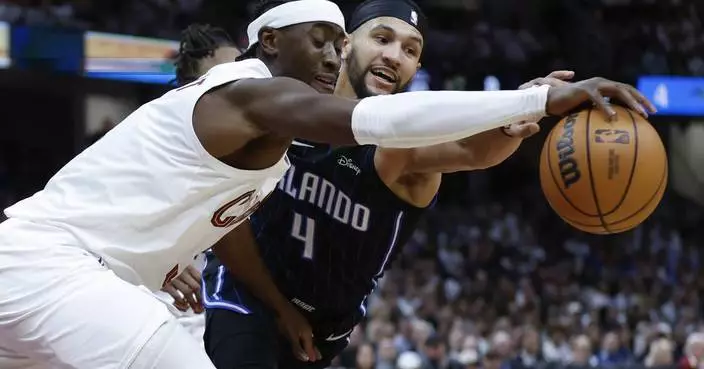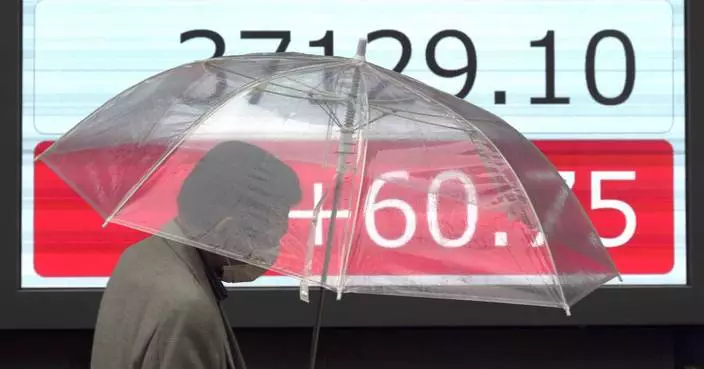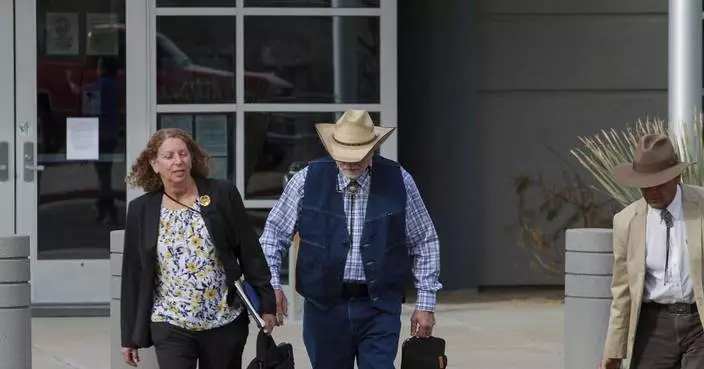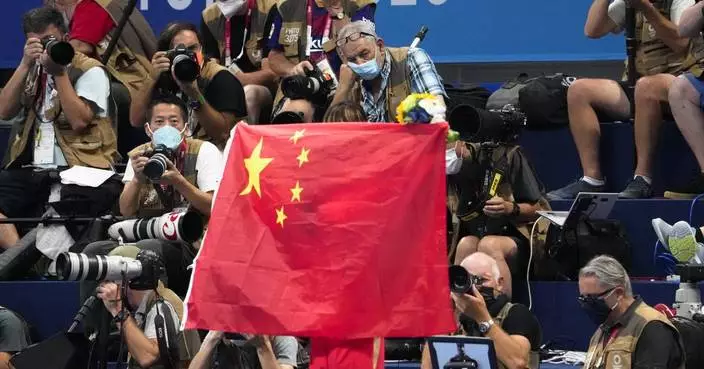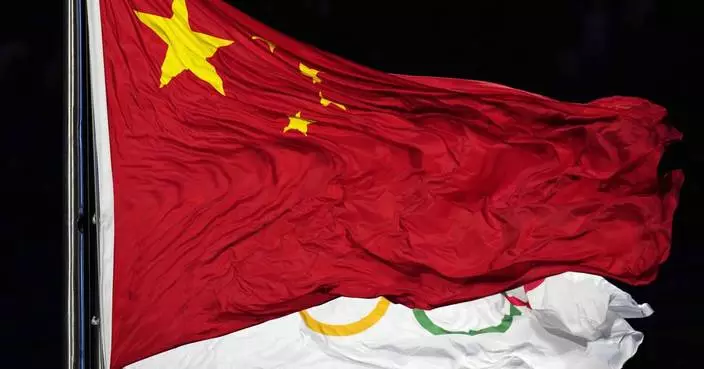China's foreign minister said Wednesday he hopes India can "learn lessons" from a recently resolved border standoff and avoid such occurrences in the future, as the leaders of the two Asian giants prepare to meet next week for a summit in southeastern China.
Wang Yi's remarks came after the countries agreed Monday to pull back their troops from a disputed Himalayan plateau where China, India and Bhutan meet.
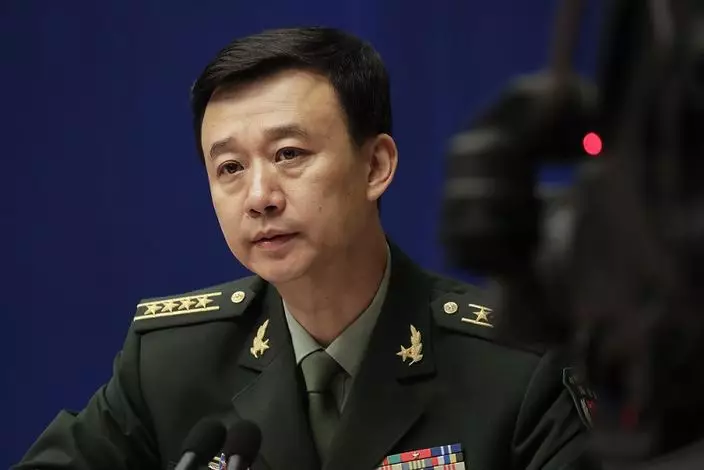
AP Photo
"We're hoping that their side will learn lessons from this incident and prevent some of the things from happening again. We hope that through the efforts of both sides we will maintain healthy and stable relations," Wang said.
Neither side has offered details of how the standoff was resolved, and China says it could resume road construction that sparked the confrontation after Indian troops moved in to block the work.
The resolution appeared to have been timed to prevent the most serious confrontation between the nuclear-armed neighbors in decades from overshadowing of a summit in the city of Xiamen next week that Chinese President Xi Jinping and Indian Prime Minister Narendra Modi are set to attend. The leaders of Russia, Brazil and South Africa are also due to attend the annual meeting of the BRICS grouping of emerging economies.
Both India and China said their troops would continue to patrol in the Doklam area as they did before the face-off.
Foreign ministry spokeswoman Hua Chunying said Tuesday that China would make its plans according to the situation on the ground and would continue to uphold its territorial integrity.
Doklam is claimed by the tiny kingdom of Bhutan, a close Indian ally, but Beijing says it belongs to China based on an 1890 Chinese-British treaty. Bhutan and China have held several rounds of talks but have not made progress in resolving the border dispute.
China and India fought a brief war in 1962 and dispute large chunks of territory.
NEW DELHI (AP) — India's main opposition party accused Prime Minister Narendra Modi of using hate speech after he called Muslims “infiltrators" — some of his most incendiary rhetoric about the minority faith, days after the country began its weekslong general election.
The remarks at a campaign rally Sunday drew fierce criticism that Modi was peddling anti-Muslim tropes. The Congress party filed a complaint Monday with the Election Commission of India, alleging he broke rules that bar candidates from engaging in any activity that aggravates religious tensions.
Critics of the prime minister — an avowed Hindu nationalist — say India’s tradition of diversity and secularism has come under attack since his Bharatiya Janata Party won power a decade ago. They accuse the party of fostering religious intolerance and sometimes even violence. The party denies the accusation and says its policies benefit all Indians.
At a rally in the state of Rajasthan, Modi said that when the Congress party was in government, “they said Muslims have the first right over the country’s resources.” If it returns to power, the party “will gather all your wealth and distribute it among those who have more children,” he said as the crowd applauded.
“They will distribute it among infiltrators,” he continued, saying, “Do you think your hard-earned money should be given to infiltrators?”
Mallikarjun Kharge, the Congress party’s president, described the prime minister's comments as “hate speech” and party spokesperson Abhishek Manu Singhvi called them “deeply, deeply objectionable.”
The party sought action from the election commission, whose code of conduct forbids candidates from appealing “to caste or communal feelings” to secure votes. The first votes were cast Friday in the six-week election, which Modi and his Hindu nationalist BJP are expected to win, according to most surveys. The results come out on June 4.
Asaduddin Owaidi, a Muslim lawmaker and president of the All India Majlis-e-Ittehad-ul-Muslimeen party, said on Sunday: “Since 2002 till this day, the only Modi guarantee has been to abuse Muslims and get votes.”
While there have long been tensions between India's majority Hindu community and Muslims, rights groups say that attacks against minorities have become more brazen under Modi.
Muslims have been lynched by Hindu mobs over allegations of eating beef or smuggling cows, an animal considered holy to Hindus. Muslim businesses have been boycotted, their homes and businesses have been bulldozed and places of worship set on fire. There have been open calls for their genocide.
Modi’s remarks referred to a 2006 statement by then-Prime Minister Manmohan Singh of the Congress party. Singh said that India’s lower castes, tribes, women and, “in particular the Muslim minority” deserved to share in the country’s development equally.
“They must have the first claim on resources,” Singh said. A day later, his office clarified that Singh was referring to all of the disadvantaged groups.
In its petition to the election commission, the Congress party said that Modi and the BJP have repeatedly used religion and religious symbols and sentiments in their election campaign with impunity. “These actions have been further bolstered by the commission’s inaction in penalizing the prime minister and the BJP for their blatant violations of electoral laws,” it said.
“In the history of India, no prime minister has lowered the dignity of his post as much as Modi has,” Kharge, Congress' president, wrote on social media platform X.
The commission can issue warnings and suspend candidates for a certain amount of time over violations of the code of conduct.
“We decline comment,” a spokesperson for the commission told the Press Trust of India news agency on Monday.
In his speech, Modi also repeated a Hindu nationalist trope that Muslims were overtaking the Hindu population by having more children. Hindus make up 80% of India's 1.4 billion people, while the country's 200 million Muslims are 14%. Official data shows that fertility rates among Muslims have dropped the fastest among religious groups in recent decades, from 4.4 in 1992-93 to 2.3 between 2019-21, just higher than Hindus at 1.94.
Modi’s BJP has previously referred to Muslims as infiltrators and cast them as illegal migrants who crossed into India from Bangladesh and Pakistan. Several states run by the BJP have also made laws that restrict interfaith marriage, citing the unproven conspiracy theory of “ love jihad,” which claims Muslim men use marriage to convert Hindu women.
Through it all, Modi has largely stayed silent, and critics say that has emboldened some of his most extreme supporters and enabled more hate speech against Muslims.
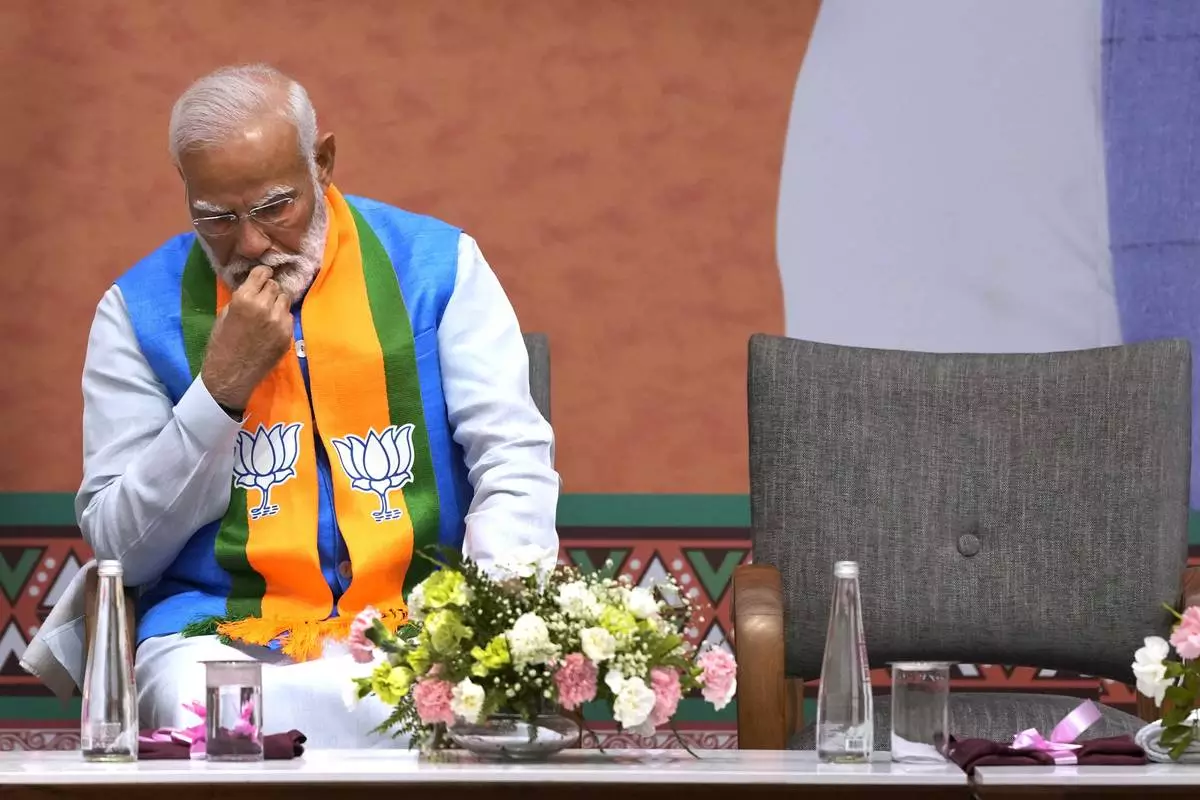
FILE- Indian Prime Minister Narendra Modi listens to Bharatiya Janata Party (BJP) President JP Nadda speak during an event organized to release their party's manifesto for the upcoming national parliamentary elections in New Delhi, India, April 14, 2024. India's main opposition party is accusing Modi of hate speech after he called Muslims “infiltrators" and used some of his most incendiary rhetoric to date about the minority faith.(AP Photo/Manish Swarup, File)







